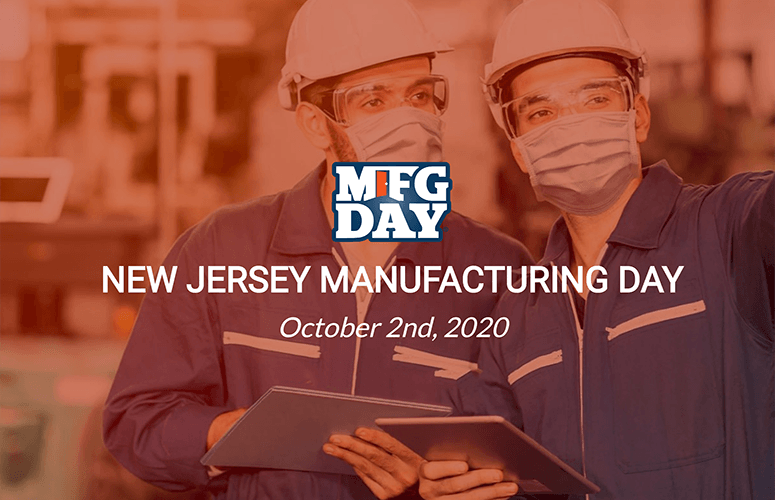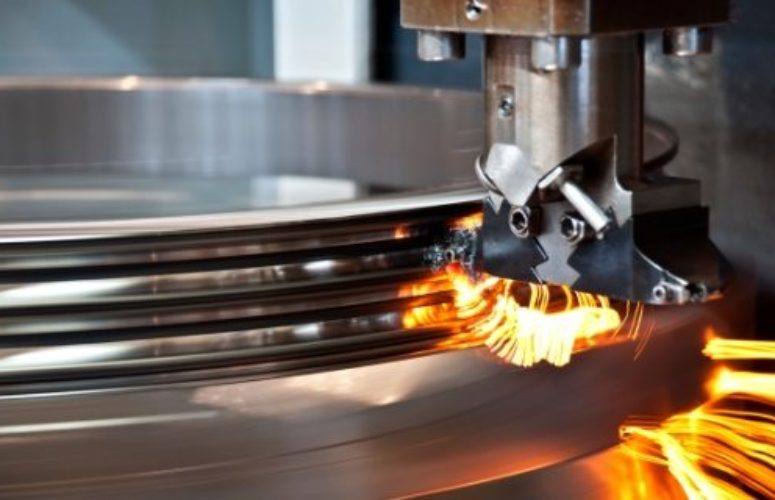
NJMEP’s Manufacturing Day Delves into Issues, Trends & Solutions
By Anthony Birritteri, Editor-in-Chief On Oct 2, 2020The need for Personal Protective Equipment (PPE) to be manufactured in New Jersey, the importance of bringing the supply chain closer to local manufacturers, and the continued training of the workforce were all topics of discussion at today’s virtual Manufacturing Day 2020, hosted by the New Jersey Manufacturing Extension Program (NJMEP), in celebration of National Manufacturing Day.
During his introductory remarks, John Kennedy, NJMEP CEO, commented how his organization quickly responded to the needs of manufacturers as soon as the COVID-19 pandemic hit. “Our staff went into 24/7 mode, putting together task force teams to focus on areas such as the supply chain, communicating with manufacturers on how to operate safely, and conducting “mini assessments” to find out the immediate needs of manufacturers and how they could obtain financial assistance from federal government programs.
NJMEP assisted more than 3,700 New Jersey manufacturing, STEM, and supply chain firms during the COVID-19 pandemic. Just yesterday, it was announced that the organization was awarded $1.5 million in state funding to expand its services and stimulate job growth.
Kennedy called the manufacturers in the state the “unsung heroes” of the pandemic. “These people went to work and stayed at work … not an easy thing to do when you are concerned about your health and that of your family’s. Additionally, mostly every phone call or email I received from a manufacturer over the last six months was about ‘How do I protect my employees?’” Kennedy said.
During the early stages of the crisis, NJMEP helped some 300 companies in the state produce PPE equipment. Kennedy said that a shortage of PPE production in the nation was the result of a flawed supply chain.
Based on comments made by Jason Alexander, principal and industrial products senior analyst at the US subsidiary of RSM, a global tax audit and consulting firm, this supply chain problem may be solved as more companies do not want to experience the “supply chain shocks” from China, as the flow of materials from that country “ground to a halt,” during the pandemic. Alexander also said that rising labor costs and growing geo-political tensions have spurred many manufacturing sectors to question globalization, especially dealing with China.
He expects a greater use of regional manufacturing innovation hubs: “Regional hubs in which local businesses, government, economic development agencies, and educational institutions will create a powerful collective to create a path towards strong growth. Better proximity to consumers, the supply of skilled labor and other synergies are all attractive benefits of this hub model. This may lead to more robust local supply chains,” Alexander said.
Gov. Phil Murphy commented that the past six months have turned the state “upside down,” but the manufacturing sector helped the state emerge “strong from the pandemic” and that it will create and maintain a resilient economy for years to come. “For small manufacturers, I am proud of the more than $100 million we have already made available to support you during these unprecedented times,” he said.
A proponent of apprenticeship programs for manufacturing, Murphy said he is also proud of “all we have done to make New Jersey a national model for apprenticeships and job training.”
Touching upon the need for more job training, Michele Siekerka, president and CEO of the New Jersey Business & Industry Association (NJBIA), commented, “We know the challenges manufacturers have in filling jobs when – even pre-COVID-19 – there were tens of thousands of vacant positions because students coming to fill those jobs lacked the proper skills sets.
“At NJBIA, we wake up every day to find ways to create new jobs and ensure a future workforce to fill those new jobs. COVID-19 did not stop us from working with our partners in the academic realm to continue to build those skills … and we will continue that today, tomorrow and for years to come,” she said.
Senate President Stephen Sweeney discussed the work of the New Jersey Legislative Manufacturing Caucus, a bipartisan panel of legislators with the mission of supporting and improving manufacturing in the state.
“A lot of people have no idea how much manufacturing exists in the state. The industry has 9,000 employers and 240,000 workers. That’s 8.5% of our economy. That’s huge!” Sweeney said. “That is why we put $1.5 million in the state budget to support the industry. Even in tough times, it is important to show that we are making the investments to make sure manufacturing thrives in New Jersey. It is the backbone of the state and country.”
To access more business news, visit NJB News Now.
Related Articles:





